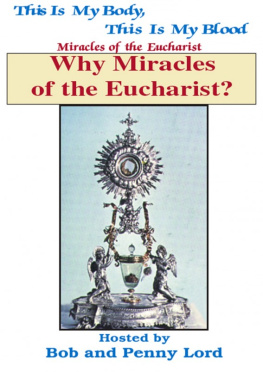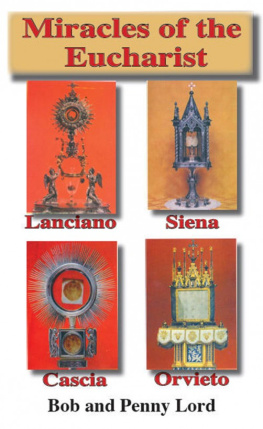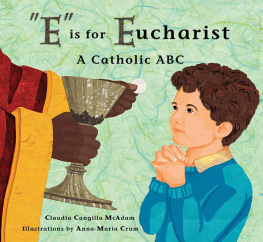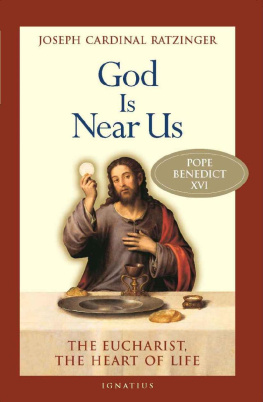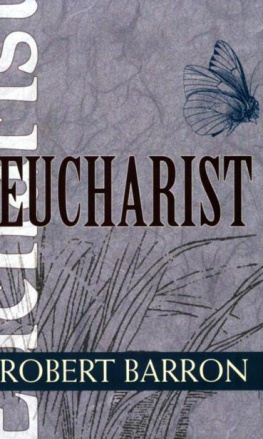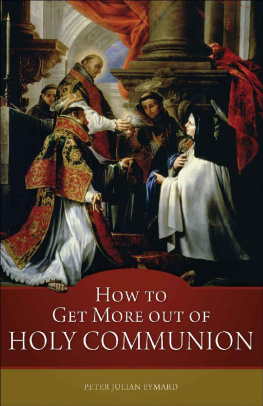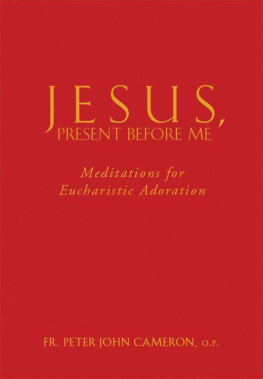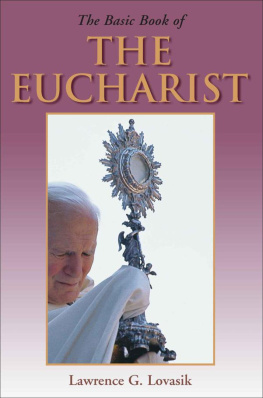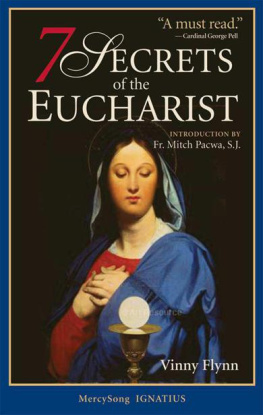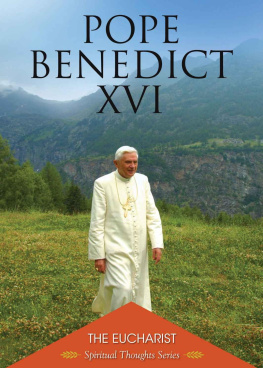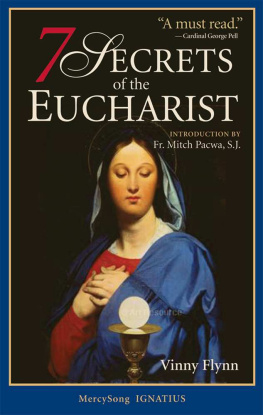THE REAL PRESENCE
ST. PETER JULIAN EYMARD
Edited by
Paul A. Ber, Sr.
VERITATIS SPLENDOR PUBLICATIONS
et cognoscetis veritatem et veritas liberabit vos ( Jn 8:32)
MMXIII
Thisis a re-publication of a work found in:
The Divine Eucharist: Meditations suitable for adorationof the Most Blessed Sacrament. First series: The Real Presence (from the 9th French ed ) .By St. Peter Julian Eymard .(New York: Fathers of theBlessed Sacrament, 1906)
. Thecontents of which is in the public domain.
However, this excerpted version is copyrighted.
ALL RIGHTS RESERVED.
Thispublication may not be reproduced, stored in a retrieval system, or transmittedin any form or by any means, in whole or in part, without written permissionfrom the Publisher, except as permitted by United States and Internationalcopyright law.
Copyright 2013. Veritatis Splendor Publications.
Cover Art
HEEM, Jan Davidsz . de
Eucharist inFruit Wreath
1648
Oil oncanvas, 138 x 125 ,5 cm
Kunsthistorisches Museum, Vienna
AD MAJOREM DEI GLORIAM
TABLE OF CONTENTS
INTRODUCTION
NO TIME more opportune than the present could be chosen toplace before the public this little volume by the venerated Pre Eymard . In the process for his Beatification, hiswritings have been declared faultless by the Sacred Congregation of Rites. OurSovereign Pontiff, Pope Pius X, has recently issued his extraordinary Decree onDaily Communion, thus marking a notable era in the spiritual life of HolyMother Church. To all pious souls who hearken to the paternal injunction of theHoly Father, this little book will afford food for deep and serious meditation.Its pages are studded with Eucharistic jewels just as they fell from the lipsof the ardent Apostle of the Holy Eucharist.
It will, as we believe, supply a need long felt byEucharistic Congresses, and help to disseminate such literature as those worthybodies of the Clergy earnestly recommend.
We trust "The Real Presence" is only anintroduction to the whole series of Pre Eymard's works, which we would be glad to see soon inEnglish garb. No sentence from the writings of this sainted servant of God canfail to give strength and courage and comfort to all lovers of our EucharisticLord. May his words help to establish the reign of Jesus Christ in the heartsof the Faithful!
J. CARDINAL GIBBONS,
Archbishop of Baltimore.
October, 1906
FOREWORD
THE works of Saint Peter Julian Eymard are recognized in the French world as classics of Eucharistic piety. In thehope they may become so in the English Catholic world, we are offering thepublic a new translation of them.
Possibly no one has so insistently and perseveringly writtenor spoken of the Eucharist as Saint Eymard has. TheEucharist worked on the faculties of his soul like a magnet. His mind andheart, as if polarized, invariably swerved back towards their star, theEucharist. He was never at a loss to discover some hidden link between theEucharist and the subject under study. Like the "householder who bringeth forth out of his treasure new things andold," he drew all things out of the Eucharist for every purpose. In facthe looked at the world only through the "Divine prism of the mystery ofthe Eucharist."
This Eucharistic approach to the problems of the soul isdistinctive of his spirituality. Duty never came alone in its cold and austerestiffness but with something of our Eucharistic Lord in it that transformed itinto a labor of love. The road that wound in and out of the shadow of the Crosswas never a lonely one, for the Eucharistic Christ stood ever near with Hisstrengthening and consoling companionship. The virtues were made lovable bybeing presented not in their native asperity but as actions of Jesus in theEucharist. The result was a spirituality based on and motivated by love forJesus in the Blessed Sacrament.
He made universal use of the Eucharist in his own life andadvised others to do as much. In short, he laid down in theory and in practicethat the Eucharist is the chief means of progress in spiritual life, the lightwhich shows the way and supplies the needed strength to follow it.
Unfortunately Saint Peter Julian never wrote nor evenplanned a complete treatise on the spiritual life, although his long experiencewith souls, his deep insight into their needs, his sure sense of thesupernatural, and the stem logic of his mind eminently qualified him for such atask. However, in his sermons and letters of direction he touched practicallyevery point of ascetical theology, so that there is in them sufficient matterfor a comparatively complete study on the spiritual life.
The present volume, The Real Presence, is a collection ofsermons that deal almost exclusively with the wonders operated by our Lord'slove in the Eucharist. From every page, Saint Peter Julian, the "Priest ofthe Eucharist," sends a ringing plea to all men to love our EucharisticLord as He deserves and to take Him as both the model and the means of theirholiness. Pondering over these chapters cannot but make us know better and lovemore the Eucharistic Christ. And with a more practical understanding of this supereminent means of grace, the problem of salvationshould be easier to solve.
May His Eucharistic Kingdom come! That was Saint PeterJulian's most ardent wish. We make it ours in publishing a new translation ofThe Real Presence.
ADORATION IN SPIRIT AND IN TRUTH
Pater tales quaerit qui adorent eum ... in spiritu et veritate .
The Father seeketh such to adoreHim... in spirit and in truth. (John iv . 23.)
I
THE object of Eucharistic adoration is the Divine Person ofour Lord Jesus Christ present in the Most Blessed Sacrament.
He is living there. He wants us to speak to Him, and He willspeak to us. Anybody may speak to our Lord. Is He not there for everybody? DoesHe not tell us, "Come ye all to Me "?
This conversation between the soul and our Lord is the trueEucharistic meditation, i . e., adoration.
The grace of it is given to everybody. In order, however, tosucceed in it and avoid routine or dryness of mind and heart, adorers must seekinspiration in the grace of their vocation, in the various mysteries of thelife of our Lord and of the Blessed Virgin, or in the virtues of the Saints. Inthis way they will honor and glorify the God of the Eucharist through thevirtues of His mortal life as through those of all the Saints, of whoseholiness He was the grace and end as He is now its crown of glory.
Look upon the hour of adoration assigned to you as an hourin Paradise. Go to your adoration as one would to Heaven, to the Divinebanquet. You will then long for that hour and hail it with joy. Take delight infostering a longing for it in your heart. Tell yourself, "In four hours,in two hours, in one hour, our Lord will give me an audience of grace and love.He has invited me; He is waiting! for me; He islonging for me."
When your hour is particularly difficult, rejoice all themore; your love will be greater for its suffering more. It is a privileged hourthat will count for two.
When on account of illness, infirmity, or some other reason,you cannot make your hour, let your heart be saddenedfor a moment. Then in spirit imagine yourself at adoration in union with thosewho are actually adoring . On a bed of sickness, or ona journey, or at a task that detains you, be more recollected, and you willderive the same fruit as if you had been able to kneel at the feet of the goodMaster. That hour will be written down to your credit and perhaps even countedfor two.
Go to our Lord just as you are. Be natural in yourmeditation. Use up your own stock of piety and love before resorting to books.Cherish the inexhaustible book of a humble love. It is all very well to take apious book with you to regain control of yourself in case the mind wanders orthe senses grow drowsy; but remember that our good Master prefers the povertyof our heart to the most sublime thoughts and affections borrowed from others.
Next page

